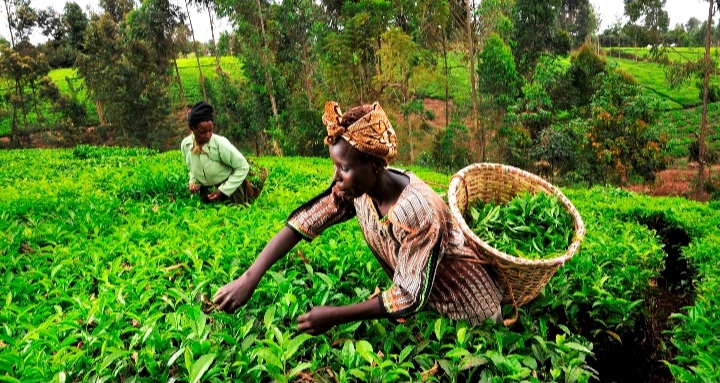EU assures African farmers of support to improve agricultural standard

By Fatima Saka
The European Union (EU) has assured African farmers and food producers of development support to improve European green agriculture standards.
This was disclosed in the ongoing meeting of the EU’s and AU’s heads of states and governments that will close today 18 February.
The EU is using the partnership to encourage African states to adopt the environmental policies in its Green Deal.
However, agri-food is part of it, the Commission’s Farm to Fork (F2F) strategy – which aims to make the European food system more sustainable through a set of stringent targets that may have a spill-over effect on African farmers even if they do not adopt parts of it.
Meanwhile, African farmers fear that requirements to meet those targets to sell their products to Europe could quickly become a significant trade hurdle.
“We do not, cannot and will not wish to impose our own system on any other country in the world,” said John Clarke, deputy director-general at the Commission’s agricultural service (DG) AGRI) in charge of trade aspects.
According to Kenyan farmer David Ndegwa, who spoke at the same event, although the EU is not directly imposing standards on African growers, the request for higher environmental and sustainable standards to sell products in the European single market indirectly leads to a request for compliance.
The EU official revealed that, all countries in the recent United Nations food systems summit took on several commitments to improve the sustainability of the food system from production to consumption, a concept that winks at the EU’s F2F strategy.
“We’re all rowing in the same direction. We may have different ways to get there. But the aims are all the same,” he said.
The issue of vaccine hoarding and African vaccine production is likely to dominate the long-delayed EU-African Union (AU) summit but both sides want to beef up cooperation on agriculture policy as well.
Another priority of France’s EU Council Presidency, Is the concept of reciprocity in agri-trade through introducing mirror clauses in trade agreements, this in-turn means that imported food products have to meet the same environmental standards European farmers have to comply with under the Green Deal as a way not to affect their competitiveness.
“We are unashamedly raising our standards. If that creates difficulties for African exporters, we are there with our development support to ensure that African farmers and the companies that are producing for the European market can meet those standards,” reassured Commission’s Clarke.
Also, the African farmers stressed that the current gap between the two continents in agriculture is also caused by external factors that are tough to cope with.
“The EU is able to grow even vegetables, especially horticultural crops in restricted areas, while in Africa, where crops are grown in open fields, pests and diseases cannot be controlled in any other way apart from chemical intervention,” said Kenyan farmer Ndegwa.
He referred to the ambitious goal of slashing the use and risk of pesticides in Europe by half by 2030 compared to the EU’s current level, which could have repercussions on African farmers exporting to the EU.
